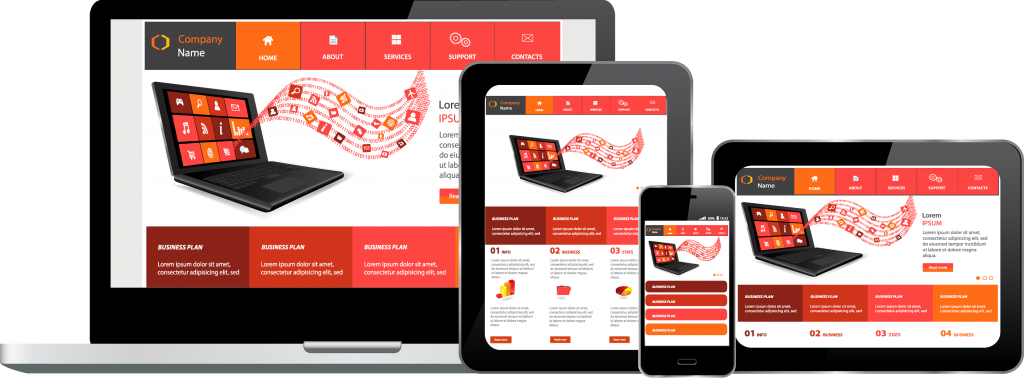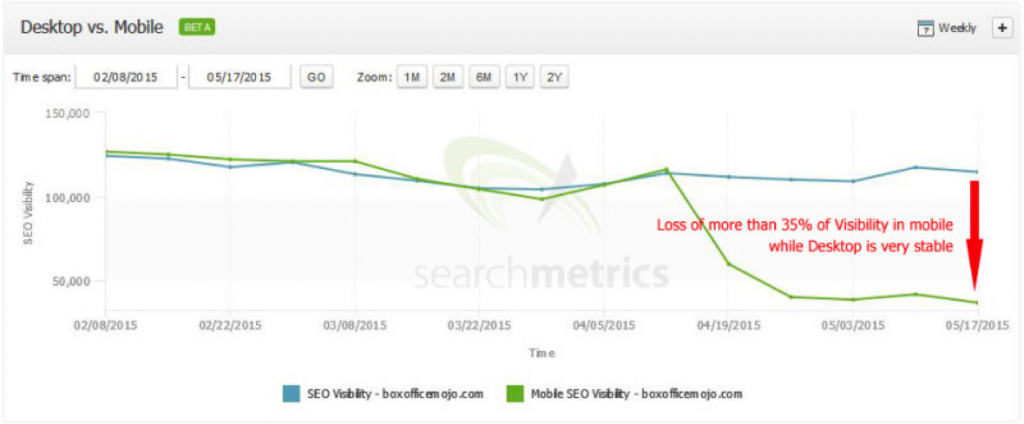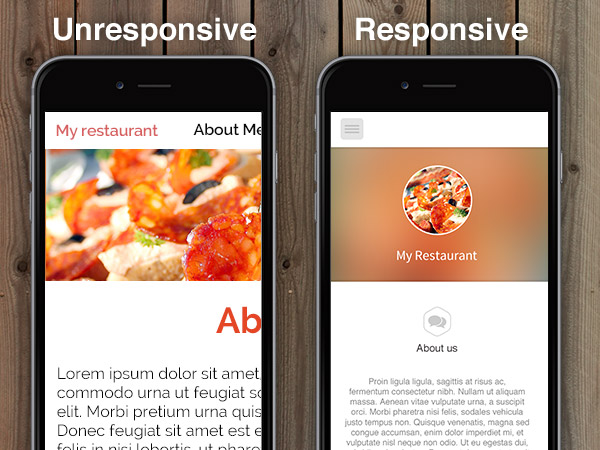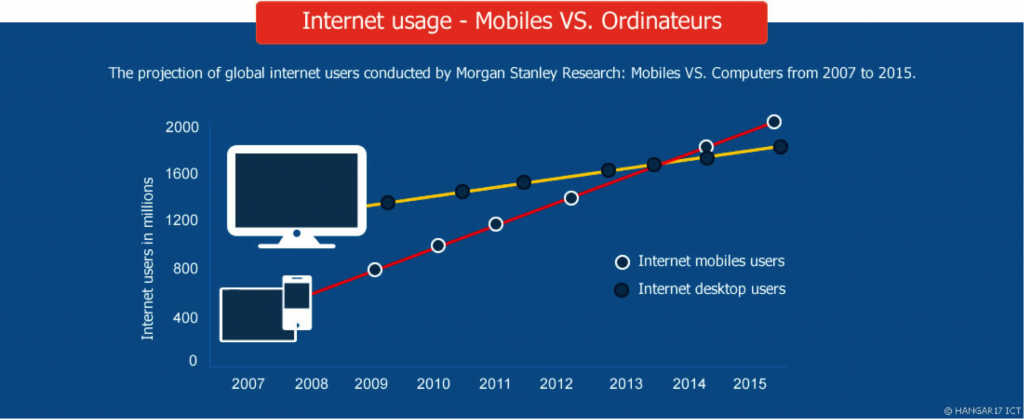Mobile Website Or Mobile App – Which Is Best For Your Business?
If you’re yet to take your business mobile, it can be confusing to know what your first step should be. Should you create a mobile-friendly website or design your very own branded mobile app?
Let’s find out.
What’s the difference?
Making a website mobile-friendly is the process of optimising a website to work seamlessly with all types of mobile devices and screen sizes. We call this a responsive website – i.e. it responds to the screen on which it is being viewed. Websites that are not responsive are difficult to navigate on mobiles and often result in your website ranking lower on Google mobile searches.
Websites that are not mobile-friendly can see as much as a 35% drop in mobile traffic:
Source: Search Engine Land
Source: MobilOptim.com
Optimising a website for mobile use involves modifying your current website or more likely replacing it to be more readable, accessible and visually attractive on mobile devices.
A mobile app is a downloadable software program that works on mobile and tablet devices such as Samsung Galaxy apps, iPhone apps or iPad apps. Users must download your app from the Apple App Store or Google Play. A mobile application is a bespoke program created to help businesses reach their objectives. It is a separate entity from a website.
There are a number of benefits of going for a custom native app. Apps will generally require a greater investment, however they perform faster, smoother and can take advantage of mobile technologies such as location-based services or push notifications.
Advantages of mobile-friendly websites vs. mobile apps
Mobile-friendly websites have several advantages. They include:
Time and cost – Updating your current website design to become more responsive is generally a cheaper option than developing a mobile app. Websites can be produced in a relatively quick time-frame and can be deployed instantly.
Longevity – Mobile websites are evolving but are not going anywhere. Most businesses are opting to have both a website and a mobile app. Studies show that more and more Internet traffic is coming from mobile devices:
Source: Mango Web Design
Compatibility – Mobile-friendly sites are made up from simple code and work on numerous web browsers and operating systems.
Advantages of mobile apps vs. mobile-friendly websites
While mobile-friendly websites are a must have for any business with an online presence in 2015, they do come with limitations and setbacks that are overcome by mobile apps. They include:
Greater conversions – In our last article we mentioned that mobile apps provide a higher conversion rate than mobile websites. This is mainly because mobile apps offer greater flexibility and features than mobile-friendly websites.
If your business sells products or services, it could be greatly beneficial to provide a platform for those sales to take place. Stats show that 82% of smartphone users turn to their devices to help them make a purchasing decision. A mobile app can be a great interactive way to achieve this. It is not an accident that major online retailers such as eBay and Amazon all have popular mobile apps.
Offline functionality – A mobile website can only be accessed with an Internet connection. Mobile apps can be used offline, ideal when applications need to be used on the go.
They’re mobile! – Many businesses choose to replace paper-based processes with mobile apps to reduce double handling (i.e. writing out paper forms, and then having an administrative person type it up and send it to the relevant parties). You may want to carry around less paperwork, utilise digital signatures, check-in at off-site work locations, use an instant communication system or track company vehicles. These sorts of features are drastically reducing wasted time and are growing hugely popular with large corporations. This type of business management solution lends itself very well to a tablet app.
Greater personalisation – With ads bombarding prospects from all directions, consumers are now demanding a personalised shopping experience. Tailored offers can be sent directly to a consumer’s phone along with apps being able to access other parts of their device, allowing you to build a stronger customer profile and offer greater personalisation.
Starbucks for example send their customers a pop-up message through their app on their birthday rewarding loyal customers with a free coffee:
So what to do next?
When deciding to go mobile, you shouldn’t limit yourself to one or the other. The sensible decision would be to get your website mobile-friendly as fast as possible. Everyday you hesitate may cost you leads and customers to competitors who have responsive websites as they will rank higher in searches and it will be easier for visitors to find the information they need.
Greater planning and decision making is needed when deciding to build a mobile app. Mobile apps may not be suited for every business and the team at Dapper will always discuss your needs in detail to ascertain the optimum solution for you.
There are so many opportunities for businesses to leverage from new technologies – many of which most people don’t even know exist.
If you want to learn more about mobile app development and the possibilities, you should talk to a reputable app development agency to discuss your business aims and find out how you can innovate, attract new leads, communicate with staff and engage customers.
Contact us here or give us a call on 1300 DAPPER (08 9227 8232).




